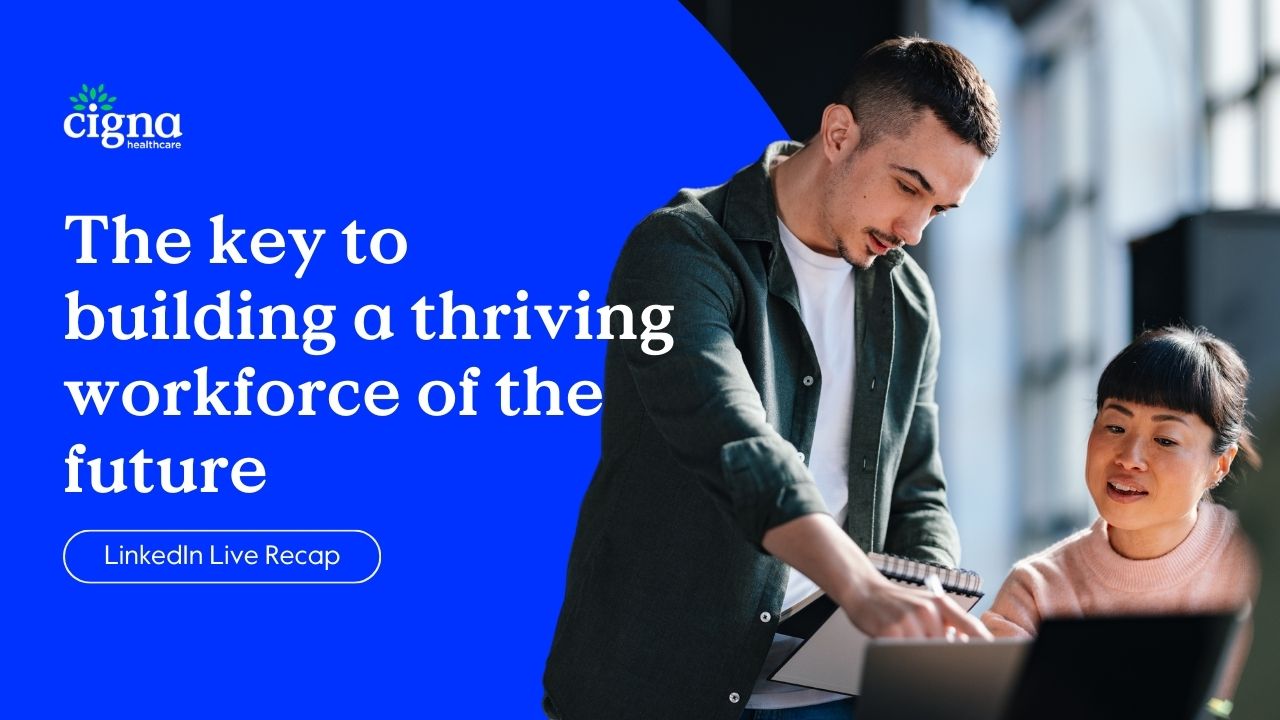In recent years, the way that we work has dramatically changed, and this has created a host of challenges for both employees and employers.
According to the recent Cigna International Health Study 2023, these changes have been particularly challenging for younger employees, who are experiencing increasing levels of stress and burnout. In addition to the pressures they face, the generational gap between younger employees and management continues to widen, creating a rift in values, priorities and motivators.
As employers, how should organisations tackle this?
We addressed this in our recent LinkedIn Live, where we spoke to a panel of experts including Manish Arneja, Managing Partner at Resilience Institute SEA, Lim Wai Mun, Founder and CEO of Doctor Anywhere, and Jana Lam, Head of Talent Acquisition, Cigna Healthcare International Health. The trio shared valuable insights on how to support and empower a multi-generational workforce.
Here’s what we learned from their incredibly insightful discussion:
Creating a High-Performing Team
Fostering a high-performing team requires a focus on building connection and trust.
One way of doing this is to take the time to understand the needs that your employees have, and find ways to address the challenges they're facing; as this can help to develop a sense of psychological safety within the office. As Manish shared, "If I don't know what a person is feeling, I cannot address their individual needs."
Unfortunately, the rise of technology and remote working has made it more difficult for such conversations to take place, for these connections to be built. This is why organisations must create opportunities for employees to connect and bond; cultivating an understanding and empathetic environment that enables them to perform at their best.
Additionally, one needs to pay attention to our communication styles. Traditionally, communication and learning are delivered in a long-form manner; however, this may not be the most effective method of communication, as more younger employees enter the workforce. However, the younger generation often respond better to things which are communicated in short-form, with information provided in a quick and concise manner.
As observed by Wai Mun, “These differences are going to become more pronounced as the younger generation get promoted to middle level management”. Organisations must find the right balance — and the solution which may be unique to their companies — to ensure effective communication in the office.
Supporting Younger Employees and Their Growth
It can be discouraging to younger employees who "want to revolutionise the whole world" (as Manish describes) when they're told 'that's not how things work here', in response to new changes and ideas that they've proposed.
This may lead to disengagement from the younger generation, who may feel that their opinion is not valued. Organisations, particularly larger companies with established ways of working, need to be careful of stifling this entrepreneurial mindset – instead, they should learn how to harness this passion and energy.
Manish suggested an innovative solution he has witnessed, which can nurture entrepreneurial spirits and increase engagement within a workforce. "Organisations can identify prominent areas for improvement via employee feedback, before allowing employees to form teams, across different functions even, and pitch possible solutions to management. Management can then support the top ideas by providing funding or introducing a test period."
Regular feedback is another crucial element of supporting younger employees and aligning them with organisational expectations. Jana observed that in her conversation with younger employees, "They want constant feedback [which are more often than the typical quarterly check-ins] and open communication."
Having avenues for such open discussions or even introducing a mentoring scheme can be an effective tool for organisations to deliver consistent and beneficial pointers to aid development.
Encouraging Balance in the Office
Younger employees who entered the workplace in the past few years may have only experienced remote or hybrid-working; and with this, comes constant communication, over messaging applications or email.
This "over-collaboration" and "over-communication" through chats, video-calls, and messages may make it hard for people to switch off from work. This is particularly prevalent in the younger generation, and being ‘on’ all the time can lead to stress and a lower quality of work. The panel emphasised the importance of upper management modelling the right behaviours in establishing good work-life balance.
Supporting employees, both existing and the younger entrants, is crucial for both the short and long-term success of every organisation. Fostering a culture of collaboration can help to bridge the generational gap and align the expectations of each employee with the organisation’s goals.
At Cigna Healthcare Singapore, we understand the importance of creating a supportive environment. Our plans provide the tools to meet the diverse wellbeing needs of a multi-generational workforce. Reach out for a quote if you would like support on a health plan that empowers your employess to thrive.


